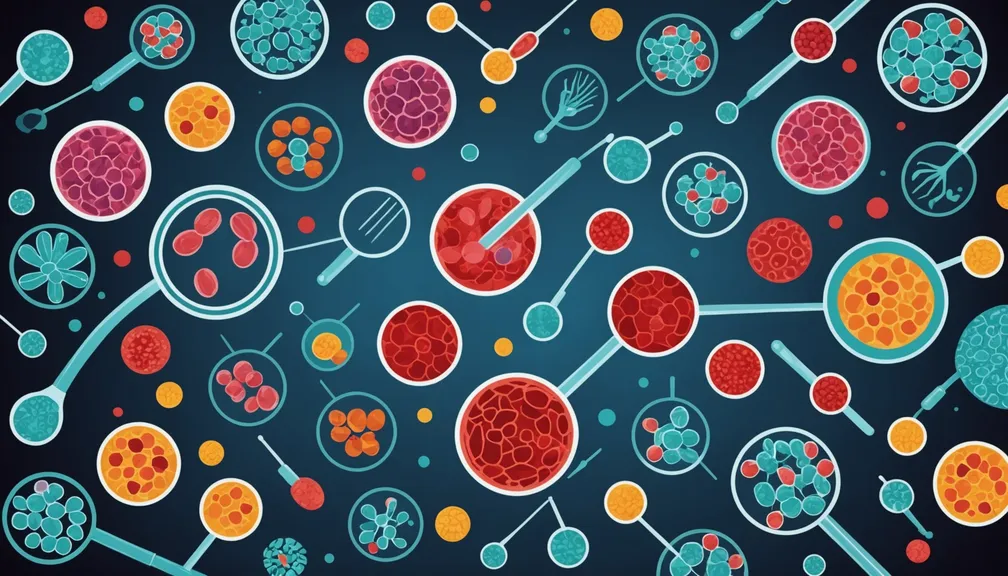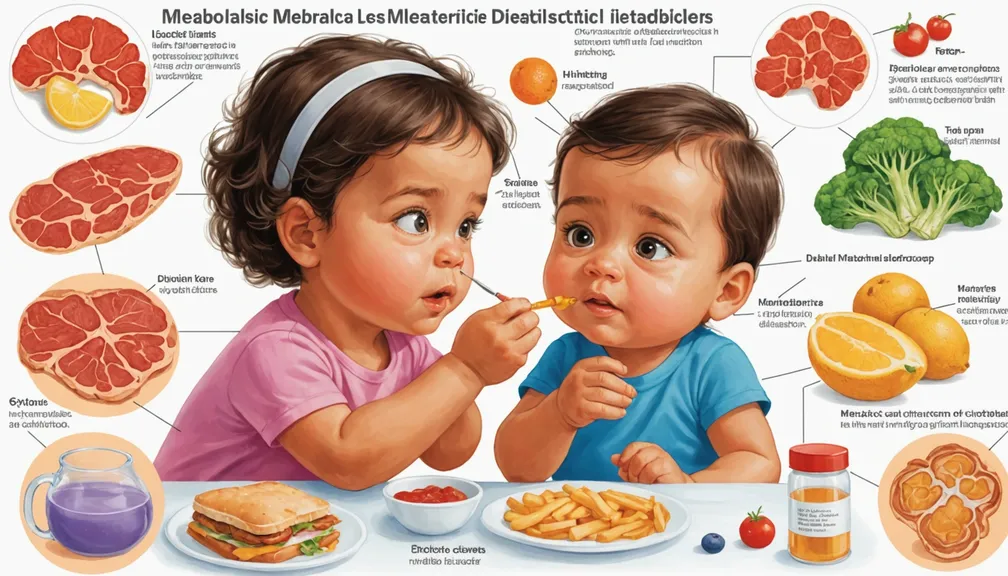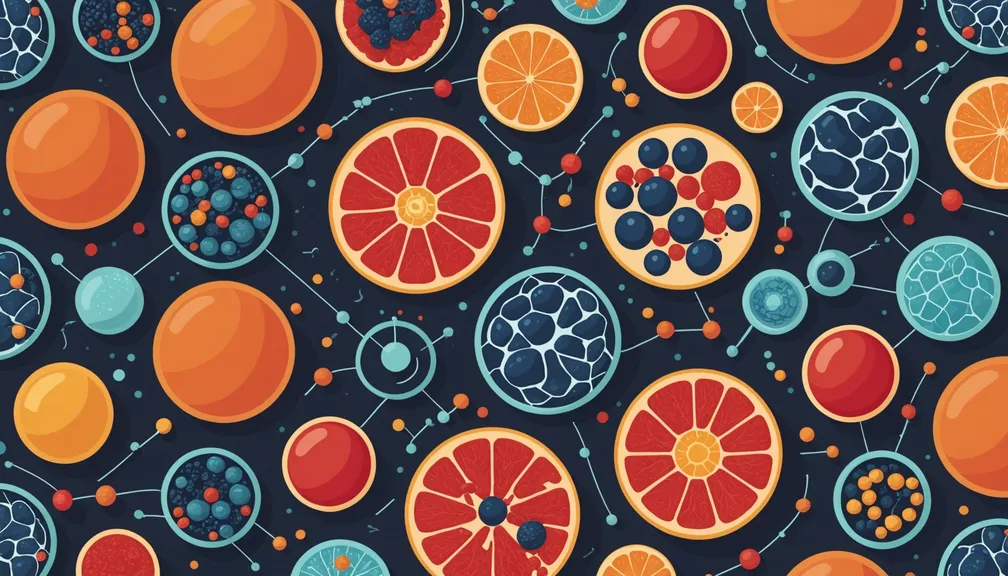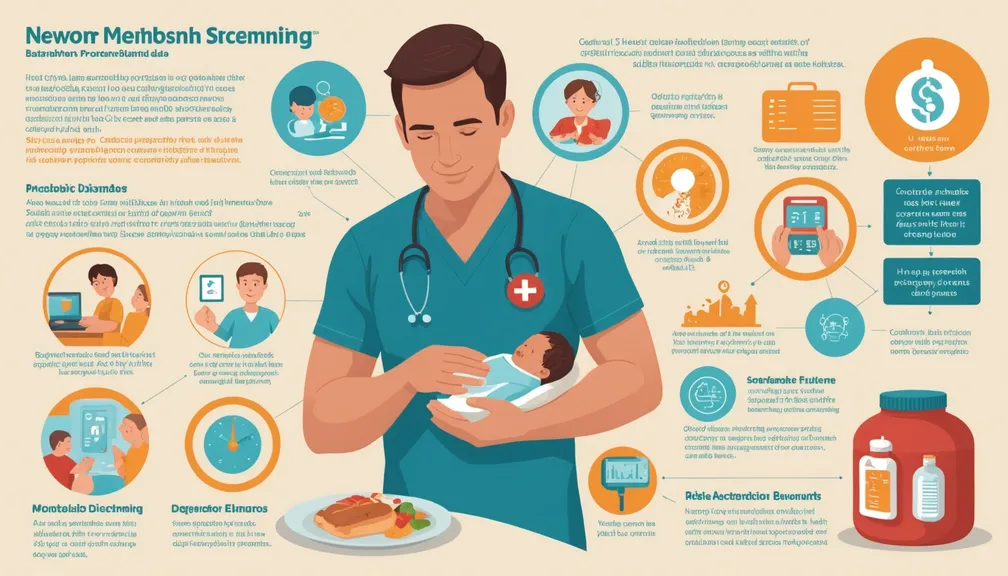Identifying Metabolic Disorders in Infants and Children
Understanding Metabolic Disorders
What Are Metabolic Disorders?
Metabolic disorders are rare conditions that affect how the body turns food into energy. They occur when certain enzymes or metabolic pathways don't work correctly. Enzymes are like tiny machines in your body that help chemical reactions happen. When these enzymes are missing or faulty, it can lead to the buildup of harmful substances or a shortage of vital compounds necessary for growth and development.
How They Affect the Body
Metabolic disorders can influence various aspects of a child's health, including:
- Growth and Development: Children may experience slower growth or developmental delays.
- Energy Levels: Affected children might feel constantly tired or weak.
- Organ Function: Important organs like the liver, heart, or brain can be impacted, leading to more severe health issues.
Common Signs and Symptoms in Infants
Physical Signs
- Poor Feeding: Difficulty in feeding or a reduced appetite.
- Vomiting: Frequent vomiting after feeding.
- Jaundice: Yellowing of the skin and eyes.
- Unusual Body Odors: Strange smells emanating from the body.
Developmental Delays
- Slowed Growth: Not gaining weight or growing as expected.
- Motor Skills Delay: Delayed milestones like crawling, walking, or holding objects.
Behavioral Changes
- Irritability: Increased fussiness or crying without an obvious reason.
- Lethargy: Unusual tiredness or lack of energy.
Common Signs and Symptoms in Children
Growth Problems
- Short Stature: Children may be shorter than their peers.
- Delayed Puberty: Slower development during teenage years.
Chronic Fatigue
- Persistent Tiredness: Constant feeling of exhaustion despite adequate rest.
- Weakness: Reduced muscle strength and endurance.
Recurrent Infections
- Frequent Illnesses: Getting sick more often than other children.
- Delayed Recovery: Taking longer to recover from infections.
Causes of Metabolic Disorders
Genetic Factors
Most metabolic disorders are inherited. They are caused by mutations in specific genes that provide instructions for making enzymes and other proteins essential for metabolism.
Enzyme Deficiencies
A lack of a particular enzyme can prevent the body from breaking down certain nutrients, leading to harmful buildups or deficiencies.
Dysfunctional Metabolic Pathways
When the series of chemical reactions that convert food to energy is disrupted, it can affect multiple bodily functions and systems.
Diagnosing Metabolic Disorders
Newborn Screening
Many metabolic disorders are detected through routine newborn screening tests shortly after birth. These tests can identify conditions before symptoms appear, allowing for early intervention.
Blood and Urine Tests
These tests measure the levels of specific substances in the blood or urine, helping to identify imbalances or toxic accumulations indicative of a metabolic disorder.
Genetic Testing
Genetic tests can confirm the presence of specific gene mutations responsible for the disorder, providing a definitive diagnosis.
Treatment and Management
Dietary Modifications
Special diets may be necessary to limit the intake of certain nutrients that the body cannot process properly. This helps prevent the buildup of harmful substances.
Enzyme Replacement Therapy
For some disorders, replacing the missing enzyme through regular infusions can help manage symptoms and improve quality of life.
Medications
Certain medications can help manage symptoms, reduce toxic buildup, or support metabolic pathways.
Living with a Metabolic Disorder
Daily Care Tips
- Consistent Meal Plans: Adhering to dietary restrictions is crucial.
- Regular Monitoring: Keeping track of your child's health and development with regular check-ups.
Supporting Your Child’s Development
- Early Intervention Programs: Engage in therapies that support physical, cognitive, and emotional development.
- Educational Support: Work with schools to provide necessary accommodations.
Connecting with Support Groups
Joining support groups can provide emotional support, resources, and valuable information from others experiencing similar challenges.
Healthcare Professionals Who Can Help
Metabolic Specialists
Doctors who specialize in metabolic disorders can provide expert diagnosis and management plans tailored to your child's needs.
Pediatricians
Your child's primary care doctor plays a key role in coordinating overall care and monitoring growth and development.
Genetic Counselors
These professionals can help you understand the genetic aspects of the disorder, family planning options, and the risks of passing the condition to future children.
Dietitians
Specialized dietitians can create and manage dietary plans to ensure your child receives the necessary nutrients while avoiding harmful substances.
Physical Therapists
They assist in improving your child's physical abilities and mobility, helping to maintain muscle strength and coordination.
Understanding and managing metabolic disorders in infants and children can be challenging, but with the right information and support from healthcare professionals, you can help your child lead a healthy and fulfilling life.






